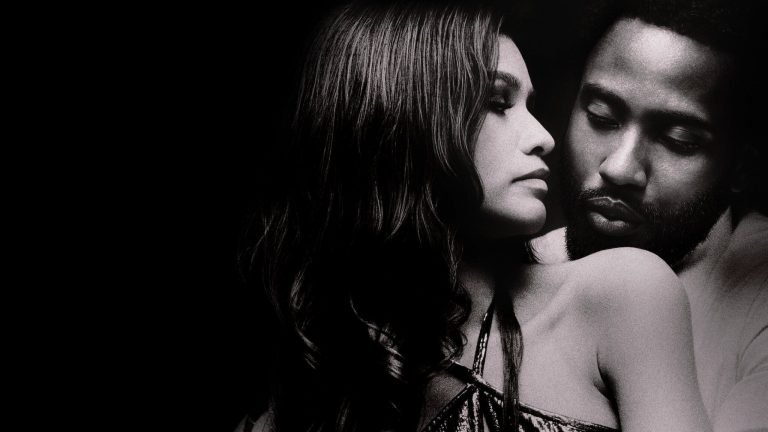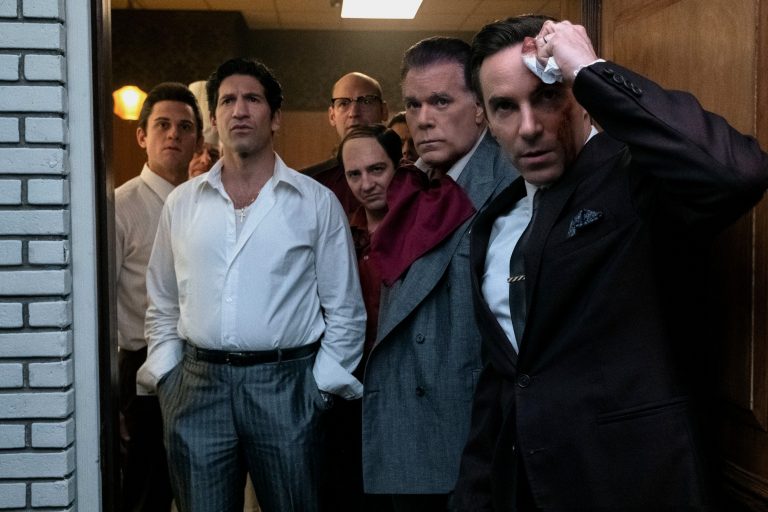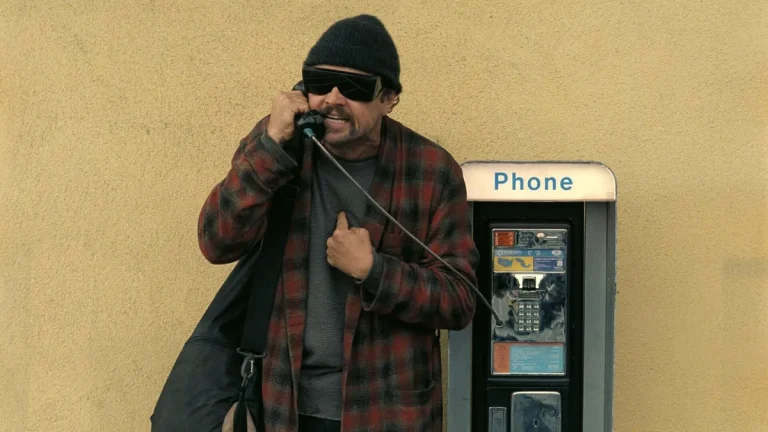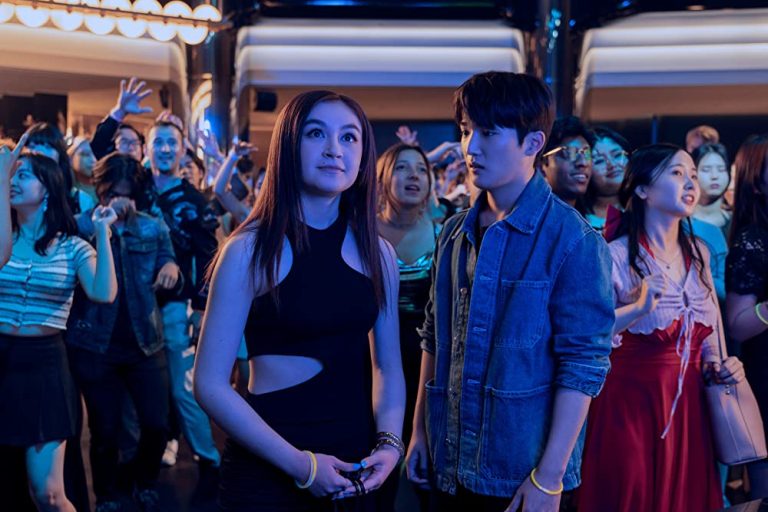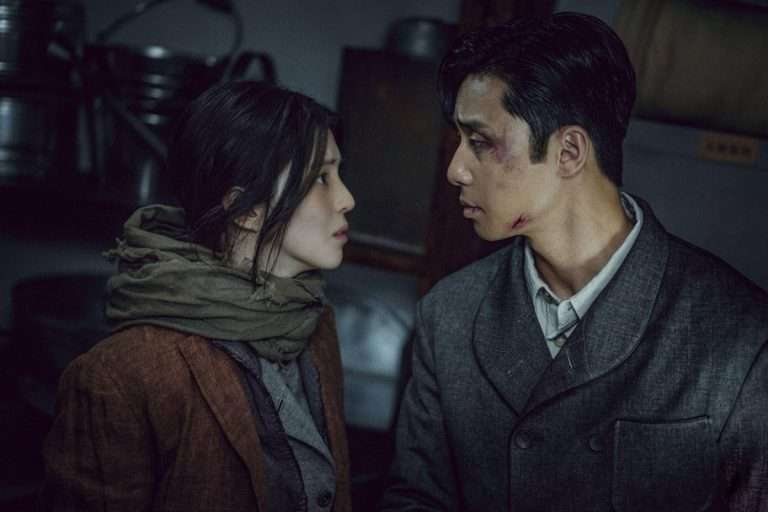Manhunt Episode 6: However the quality of this miniseries will finally shape up to be, Anthony Boyle essaying Booth is an inspired casting choice, with even his exaggerated accent highlighting the dubious and delusional falsehood that Booth exists within. While “Manhunt” had been teasing Booth’s end by placing him at the tobacco farm where historically he would be killed, what truly stands out is not only how much his death is shown to mirror Lincoln’s but also how much of “Manhunt” is about Booth and yet also not about catching him.
Manhunt Episode 6 “Useless” Recap:
What is John Wilkes Booth’s ultimate fate?
“Manhunt” Episode 6 could be decidedly divided into two parts: the capture and death of John Wilkes. Booth covers the first half, with the aftermath covering the later half. As Booth wakes up from another strange dream of hiding in a forest, while Stanton is almost grinning like a demon is chasing after him, Booth learns that the “angel” he had witnessed, Julia Garrett, is unwilling to part with her horses. She is also reticent about allowing Booth “hospitality” because she wouldn’t part with her honor.
It’s not enough that Booth is delusional but Booth also takes this opportunity to try to flirt and cajole with her, exploiting her fandom for him to aid in their escape using the horses. While Julia almost prepares to waver because Booth is quite convincing, she ultimately forces Herold and Booth to hide out in the barn, promising them to send the horses in the morning if her father approves. But Herold already suspects, and his fears are confirmed when Julia locks the two of them inside the barn, trapping them in.
But Booth doesn’t agree with Herold’s premonitions, arguing that he has found himself in worse scrapes. He regaled with examples—about how a young red-headed dancer named Henrietta gave a scar on his cheek because he had slept with her sister, or how a fan had shot him in the hip with a pistol at Georgia, which led to a large scar on that side and his bones becoming tender, leading to his current situation with a broken foot on that side. Hilariously, Booth acknowledges that local gossip would suggest Booth’s pistol going off in his pocket, which Booth frequently defends against, but now that six episodes in, one can easily surmise that narcissism drives most of Booth’s own narrative.
As for the soothsayer who predicted his untimely demise, cutting short a life at a very young age, Booth, soon to be 27, disagrees, calling them a rank amateur. He instead believes that he is charmed. Out of the many brothers he had, three having passed away to cholera and the other in something else, Booth and his brother would also have to contend with their father’s praises, where the younger Booth would be called useless when he asked to be trained as an actor. He believed in his mother’s words—words that the poor soothsayer might have said for comfort, but Booth had taken as gospel—that he had been born with the most beautiful hands, god-given, and endowed with great purpose. And Booth believes shooting that “tyrant son of a bitch” in the theatre was his divine purpose.
It’s fascinating, then, how much of Booth’s end came under the hands of another Union soldier believed to be blessed by God. The cavalry soldiers, among whom is one Boston Corbett, reach Garrett’s farm and, without much of a fight, extract the whereabouts of Herold and Booth at the tobacco barn. Upon realizing that they are surrounded, both Herold and Booth decide to take a stand. However, realizing that they were outnumbered, they finally had to acquiesce. But Booth, however, refuses to go without a fight, asking for a duel. The Union commander, who later reveals the reason for not shooting them down by refusing to lose any more Union soldiers, orders them to surrender.
Herold, at this point, realizes that it is all over, and he tries to surrender, even trying in vain to convince Booth to surrender, but to no avail. Booth also tried to emotionally manipulate Herold, reminding him that Herold had just been a disposable pawn for Booth, and even then, Herold had failed. Meanwhile, the Union soldiers try to smoke Booth and Herold out by setting fire to the barn.
As the heat increases and smoke begins to fill, Herold throws his gun on the ground to surrender. Booth pushes him out, shouting out to the cavalry not to harm him, proclaiming that he had been the lone planner and gunman responsible for the Lincoln assassination. Herold exits the barn and is pushed to the ground while the cavalry searches for weapons. Tied up to a tree, Herold watches in horror as the barn begins to burn down. He protests that Booth has gone mad, and the colonel decides to send Herold back inside the barn so that he can convince Booth to surrender peacefully.
Personally, this is not the best plan to ever be conceived, especially considering the redundancy, but I genuinely don’t think anyone expected Corbett’s unpredictability to produce such a poetic form of retribution here. While Herold tries to convince Booth, Corbett sneaks around the back of the barn and, through a peephole, fires at Booth, hitting him in the back of the neck. Ironic because it is the same spot where Booth had aimed to kill Lincoln.
As Herold calls for help and drags Booth’s body out, Booth begins to lose consciousness. Julia brings in a pillow and lays Booth down, the pillow slowly becoming blood-soaked as Booth coughs up blood. As he breathes his last, he hallucinates and calls out for his mother before muttering, “Useless, Useless,” and passing away. For Corbett, him hitting Booth at the back of the head is God’s response to the tragedy, while Baker is irritated because there would be no reward money if Booth died.
What’s next for Stanton?
Stanton that night recovers enough and insists on being taken to Garrett’s farm, ignoring his son’s protestations, as the last episode saw Stanton fall unconscious when his asthma inflamed his extremities and almost brought him close to death. However, Stanton is unable to capture Booth alive. When he arrives, the barn has already been burned down, and Booth, the scourge of Lincoln, is shot dead, now a “nobody,” according to Stanton.
Ordering Booth’s body to be transported to DC, Stanton does a thorough check of Booth’s belongings and recovers his diary, the talisman that would supposedly craft Booth’s narrative for the world to listen to. Stanton then instructs Eddie to dump Booth’s body in any random grave or body of water once the autopsy has been done. It is the only way to dismantle Booth’s penchant for notoriety—an unmarked grave or no grave at all. He goes so far as to instruct Eddie to carry decoy graves with him as well.
Back in DC, Stanton and Justice Holt tried to convince President Johnson to hold the conspirators of the murder of Lincoln to trial in a military tribunal. Both of them believe the tribunal is the only institution neutral enough not to be bought by Sanders and other supporters of the Confederacy. Stanton also informs Johnson that Jefferson Davis and many of the key members of the leadership of the confederacy are still in hiding, and Stanton wants to charge Davis with the assassination, along with Sanders, Suratt, and Booth, all under the ambitious umbrella of a grand conspiracy. It’s an ambitious plan, and Johnson agrees but doesn’t hesitate to point out the sole flaw in that plan: for a successful case, they would require a star witness.
The hunt for the witness begins with a vengeance. Freedman Swann, who had been responsible for transporting Booth and Herold through the jungles, refuses, believing that he would not support a society that still doesn’t consider him a fully free man, even though Swann himself proclaims as such. Meanwhile, Dr. Mudd tries to coerce his fellow neighbors to testify for him, highlighting his deeds as a moral citizen. Mudd is also not ungenerous, sneaking in cash from an unwilling participant to buy his testimony.
Meanwhile, Stanton interrogates Herold, asking him the same question that Swann and later Booth had also asked Herold: why follow a man like Booth, and whether he knew who convinced Booth to assassinate Lincoln. While Herold had been ignorant of the latter, he convinced Stanton that he had been swept up by the thrill and the possibility of being Booth’s friend, ready to follow him to the ends of the earth. He asks Stanton whether he has ever known such a friend, and Stanton, remembering the fallen president, says yes before rebuking Herold, stating that if he had known about the plot, Stanton’s friend might have been alive. Before leaving his jail cell, Herold asks Stanton about Booth’s diary and whether Herold can have it. Stanton walks out without answering.
Can a case for grand conspiracy be established?
The hunt for Jefferson Davis is at a fever pitch in the War Office, apparently having been sighted in Georgia. However, the plan to push a grand conspiracy angle is an uphill battle, and both Eckert and Eddie argue that there isn’t any definitive connection the war office has to make between Davis and Booth. Stanton argues that since their enemy has stopped playing by the rules, it’s time for the war office to start bending some of them, asking Eckert to push the Confederate Code connection hard.
Justice Holt warns Stanton against obsessing over this case, but Stanton stands his ground. When Stanton leaves, both Holt and Eckert are convinced that Stanton is delusional, but Eddie puts them to task. He reminds them that of all his father’s flaws as a war secretary, the one thing he has always been was a fantastic trial lawyer. If anyone can prove the existence of a grand conspiracy, it is Stanton.
Where is Jefferson Davis?
“Manhunt” now takes us to Irwille, Georgia, the Confederate camp where Davis had been hiding out with the last of the leadership. While playing cards with his comrade, a courier gives him a message that states a Confederate agent in the United Kingdom is willing to extradite them to London and would be open to sending a ship. Davis is open to the possibility of reinforcing his forces and dreams of a Confederate America outside America until the time is right.
Unfortunately, his dreams are cut short as the courier is suddenly ambushed by Union soldiers. The cadre of soldiers attacked the camp and began arresting the Confederate sympathizers. Davis tries to escape with his wife’s shawl covering his face, but he is also finally caught red-handed. The success of the mission is relayed via coded message to the War Department, news that bolsters their confidence, though Eckert still remains anxious.
Manhunt Episode 6 “Useless” Ending Explained:
What did Stanton burn in the fire?
At the Arlington Settlement for Freedmen, Stanton visits Elizabeth, Mary Todd’s friend. She remarks that the freedmen lack the necessary skills to become functional members of society, and Stanton believes that once they have the necessary votes, he could urge for improved conditions, doctors for the slaves, and schools for the children.
But Stanton had come there to visit Mary Simms, where he requested that she testify against Dr. Mudd. She is understandably reluctant, as she doesn’t want to become trapped in this bureaucratic nightmare and just wants to pursue her own life that has been denied to her. Stanton promises that her word and testament would be tantamount to bringing about change and, at the very least, hold importance and asks her to consider. At the office, Stanton learns that Davis has been caught wearing his wife’s shawl. Remembering the ridicule that Abe had faced for wearing women’s clothes to avoid death threats in Baltimore, Stanton urges Eckert to publish the story about Davis’ capture and emphasize how he had been caught.
Eddie and the leader of the Union forces responsible for Herold’s arrest come into his office. He asks Stanton whether there is any possibility of acquiring the reward money, and Stanton shuts him down immediately. As Baker walks away, dejected, Stanton begins reading Booth’s diary. Eddie asks whether there is any incriminating information, which Stanton urges Eddie not to worry about. He then asks Eckert to call in Lafayette Baker and Conover so that they can assist him in linking the evidence and strengthening the grand conspiracy case against Davis and Booth.
The last scene of “Manhunt” Episode 6 shows Stanton walking to the fire, tearing out several pages of the diary, and burning them. It is now a matter of curiosity as to what could be contained in that diary that Stanton doesn’t want to be found. The manhunt is over, Booth is dead, and both Eddie and Eckert are digging decoy graves all over such that Stanton’s plan to wipe Booth’s name off history, reducing him to a nobody, is attained. But considering one episode is still left for this season, the story is far from over.





